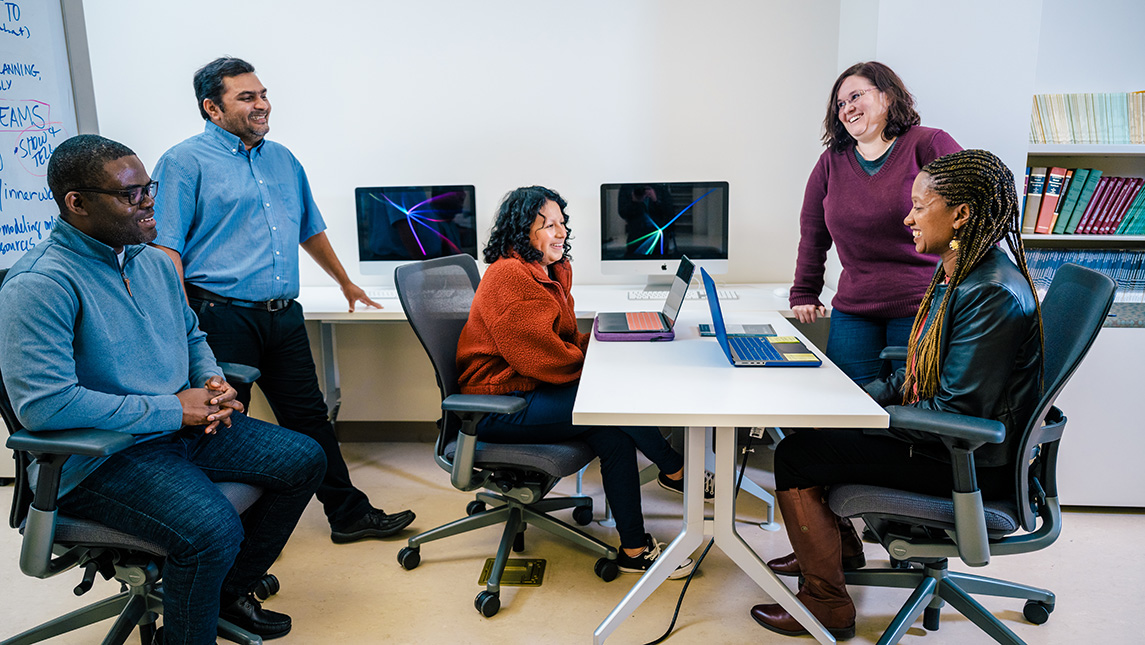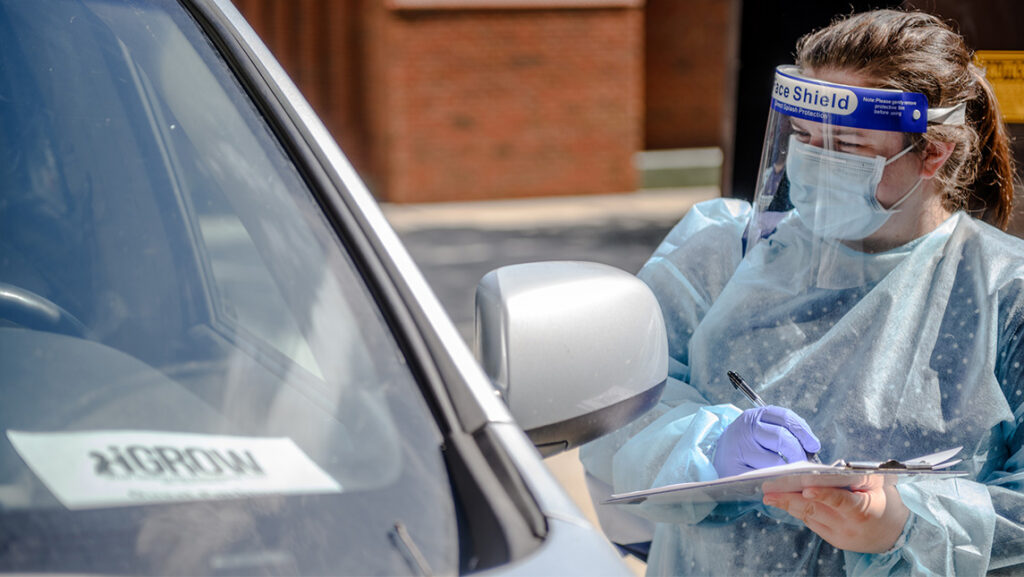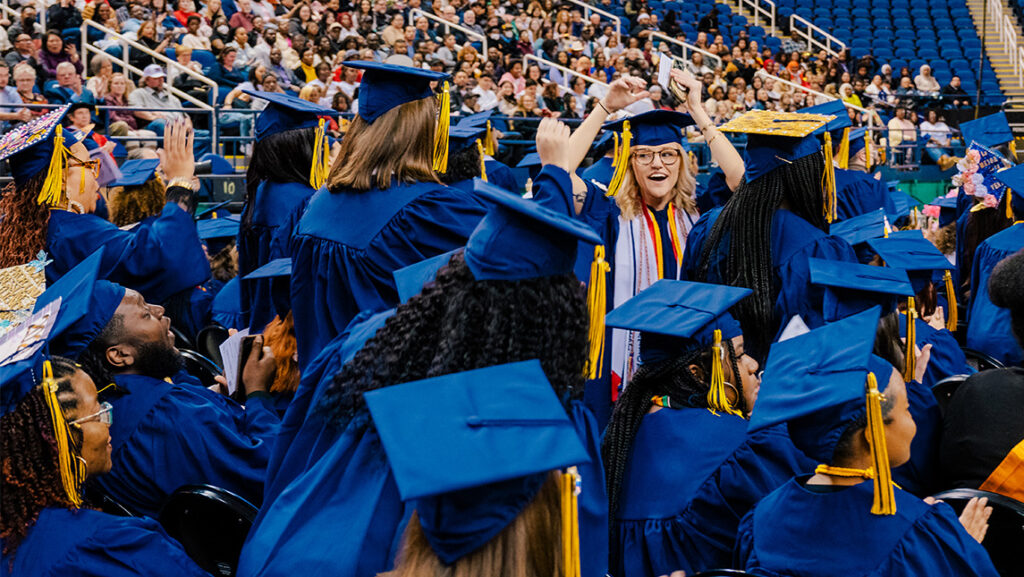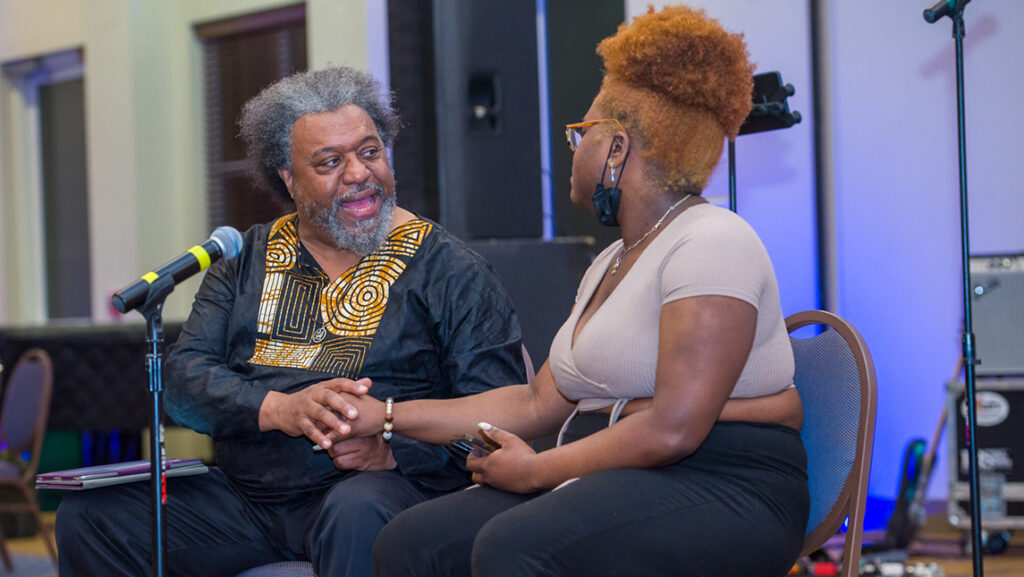Dr. Aileen Reid has earned many impressive academic titles throughout her career, including program evaluator, assistant professor in the Educational Research Methodology Department, and co-director of the STEM Program Evaluation Lab.
But one of the titles that matters to her most is “mentor.”
“What draws me to education is helping students succeed,” Reid says. “It’s about training the next generation of super competent, excellent humans who are going to go out and change the world.”
Reid, who received the 2021 Thomas Undergraduate Research Mentor Award, has mentored a whopping 28 student researchers during her time at UNCG – many of whom have gone on to graduate school. This semester alone she is directing 11.
Undergraduate and graduate students on Reid’s team plug into her $3.8 million program evaluation research program, with funding from leading agencies such as the National Science Foundation. Much of her evaluation work revolves around broadening participation from underrepresented groups in STEM.
For Reid, a lasting mentor-mentee relationship often begins by striking up a conversation with a student on campus. She seeks students who have a research spark – and a desire to make a difference.
“For undergraduates, I want to hear their academic and career plans, but I also want to hear the deeper issues of their heart, in terms of how they want to impact the world,” she says.
Reid typically recruits undergraduate students through word of mouth or by attending research events. Like Sasha Taylor, a freshman psychology student, who she happened to be sitting next to at a networking reception this past fall.
Reid was struck by Taylor’s “richness in perspective” and sensed she might have an affinity for research. So, she invited Taylor to join her lab.
“I was very excited for the new experience,” Taylor says. “I felt honored that she saw enough potential in me to give me that opportunity.”
As a new member of the research team, Taylor says she was struck by Reid’s warmth and leadership, and the incredible diversity of her group. Reid paired Taylor with a graduate student on a dedicated project. All students on her team work in these “research squads,” learning from one another.
“Everybody is equipping everybody else,” Reid says.
This peer-support system is just one aspect of Reid’s multi-faceted “values-engaged, educative (VEE) training model,” described in detail in a paper recently accepted in New Directions for Evaluation.
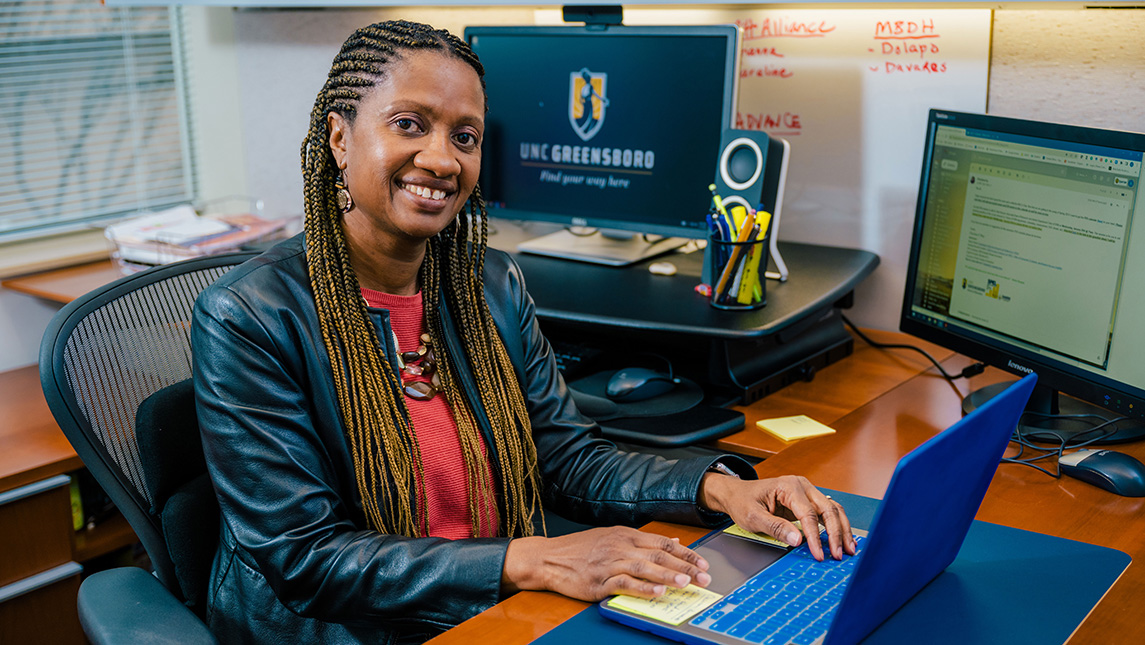
Implementing the VEE training model requires believing that each student can succeed, providing them with the tools to do so, and cultivating a lab environment that embraces and values each team member’s culture, perspective, and identities.
“We come from multiple diverse backgrounds,” Reid says. “We have lots of international students, students of color, and women on the research team. These are points of connection that we leverage to build relationships.”
Third-year graduate student Joy Alcantara Chuquiruna says she is grateful to be a part of this diverse environment full of open-minded people and respectful conversations.
“Being in a room and able to visually see that diversity and know that everybody is being included is really important to me,” Alcantara Chuquiruna says.
Reid says team members share in one another’s big and small life moments, whether that means hosting a baby shower or celebrating a research success.
“I don’t create a barrier where I’m Dr. Reid and you’re a student,” she says. “Instead, I’m open about, ‘This is me. This is my life.’ I will talk about my family. And that opens the door for them to share and talk as well.”
The VEE training model couples relationship-building with technical skill development, from statistics to academic writing. Alcantara Chuquiruna says Reid provides in-depth feedback about her mentee’s progress that is tailored to their own goals.
Students also receive specific training focused on social justice. Reid brings in guest lecturers that discuss systems of inequity and spearheads book discussions on revolving topics, including reading “How to be an Anti-Racist” by Ibram X. Kendi as a group.
“Part of our training and approach to mentorship is recognizing that if we are going to attend to issues of diversity, equity, and inclusion, anti-racism, and social justice in our research, then the students we’re training also have to be attentive to these issues,” Reid says.
This type of mentorship isn’t simple. Providing high-quality and nuanced training for students requires time and energy that can detract from other pursuits, she says.
But for Reid, this investment in students is worth it and deeply intertwined with her own values.
“To me, mentorship is about creating change agents,” she says. “When I think about how I want my life to count, I want to help with multiplying people who are going to change the world.”
Story by Rachel Damiani
Photography by Sean Norona, University Communications
